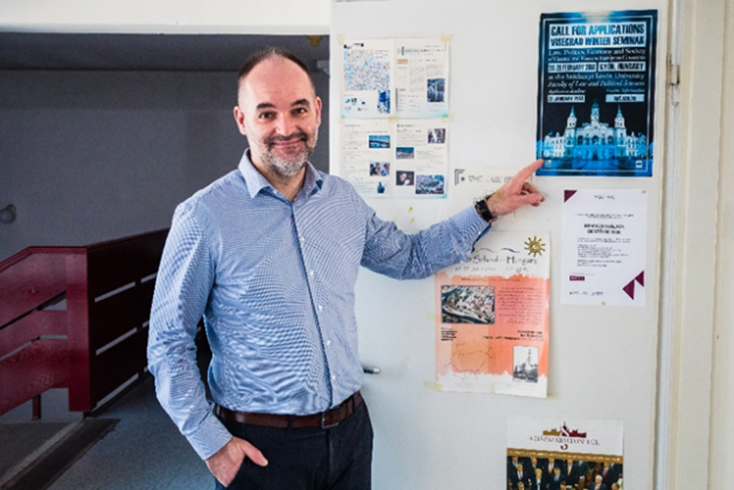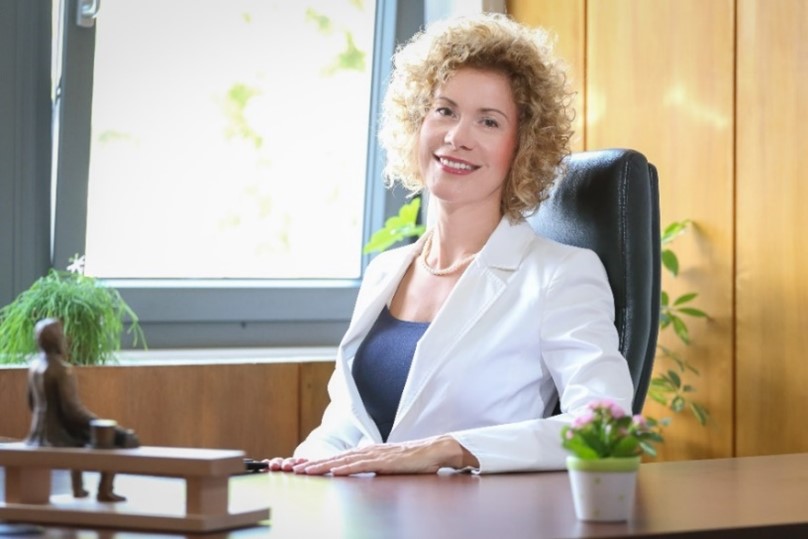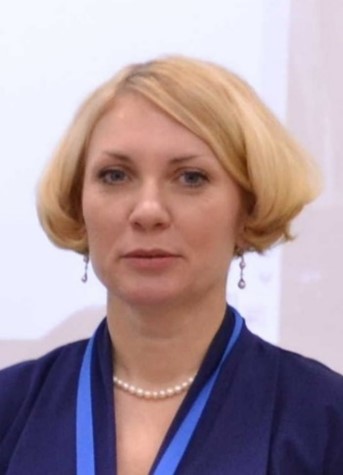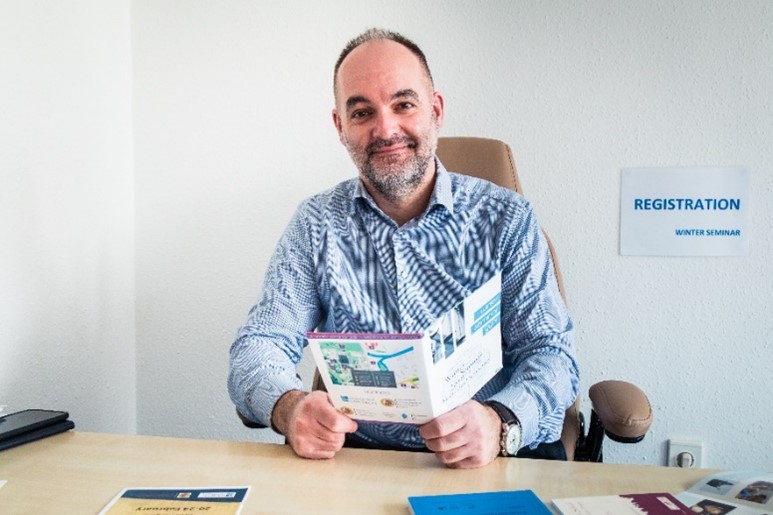Winter Seminar: Széchenyi degrees respected abroad
 In the process of internationalization, Széchenyi István University has successfully adapted to the changed circumstances and restrictions in force due to the protective measures against the coronavirus, emphasized Dr Eszter Lukács, Vice-Rector of Educational Affairs at Széchenyi István University, at the recent online opening of this year's Winter Seminar. In addition to current students, this year 30 alumni from Europe and beyond participated in the programme, the latest in a series with a ten-year history. We asked the main organizer, Dr Péter Smuk, the secret of the event’s success.
In the process of internationalization, Széchenyi István University has successfully adapted to the changed circumstances and restrictions in force due to the protective measures against the coronavirus, emphasized Dr Eszter Lukács, Vice-Rector of Educational Affairs at Széchenyi István University, at the recent online opening of this year's Winter Seminar. In addition to current students, this year 30 alumni from Europe and beyond participated in the programme, the latest in a series with a ten-year history. We asked the main organizer, Dr Péter Smuk, the secret of the event’s success.
Anita Czeiner-Szücs, SZEnews
In the last ten years, the Winter Seminar, which this year attracted over 115 participants, has become one of Széchenyi István University’s largest international alumni meetings. The lectures and workshops of the three-day professional programme entitled “Where to Study? Where to Work? Where to Live?” were grouped around public, legal, political and economic topics. This year's programme participants examined the effects of the coronavirus on higher education, the labour market and European mobility.
"Looking to the future of higher education, it is already clear that once the coronavirus epidemic has been overcome, more emphasis will be placed on the methodology of blended education, i.e. online and offline. It will also be necessary to evaluate the student experience. In order to maintain the digitalisation of education, a strong commitment to significant investment is required," pointed out Dr Eszter Lukács, Vice-Rector for Educational Affairs at Széchenyi István University, in her opening speech, having given the audience a comprehensive picture of the effects of the pandemic situation on Hungarian higher education. She spoke about the now internationally recognized MaxWhere platform, developed by Széchenyi professionals, and its application which facilitated the start of the academic year for international students at the University.

Dr Eszter Lukács: the measure of the quality we provide is the fact that Széchenyi István University is included on the international university rankings lists of both QS EECA and Times Higher Education Impact Rankings. (Photo: Zoltán Kun)
As the Vice-Rector said, in Széchenyi István University’s internationalization process – which serves to increase the global visibility of the institution and fulfill its third mission – they have successfully adapted to the changed circumstances and restrictions during the period of protective measures against the coronavirus. “The dynamism of our internationalization is shown by the fact that in the period before and during the pandemic, the number of English-taught academic programmes increased to thirty-four, with the total number of international students increasing fivefold. The fact that the University features on both the QS EECA and Times Higher Education Impact Rankings is another measure of the quality we provide,” Dr Lukács emphasized.
Joining the event in Győr for the ninth time, Dr Marina Lazareva also gave a presentation at the online opening. In her presentation, the professor from the Vologda Institute of the Moscow State University of Law (MSAL) emphasized the importance of international and inter-university relations. For this reason, she proudly mentioned the cooperation between the Russian institution and Széchenyi István University, which goes back nine years and which, despite the pandemic, has not been interrupted.

Dr Marina Lazareva
“Among the guests of the Winter Seminar, in addition to active students, there are more and more graduates who again and again come to the University of Győr from Russia, Poland, Turkey, Spain and Serbia, for example, because they say they are impressed by the professional quality of the lecture series, the ambitious complementary programmes and the excellent community spirit created here. They are also attracted by the fact that we try to provide a publication interface for the best research papers. And this year, thirty alumni have joined the workshop,” said constitutional lawyer and main organizer of the series of events from the start, Dr Péter Smuk, while summarising the secret of the event’s success.
As he said in response to our question, the added value of this year’s Winter Seminar is when graduates participating in the event share their positive experiences about the value of a Széchenyi degree, which in several cases has brought opportunities for the establishment of prestigious international collaborations. “Our former students enjoyed studying at Széchenyi University and are happy to join us after graduating, too. I can proudly say that a degree from Győr also has cachet on the international stage,” stressed the professor.

Dr Péter Smuk enjoys meeting up with former students (Photo: Csaba J. Májer)
At this year's Winter Seminar, Dr Wawrzyniec Konarski, Professor and Rector of the Vistula University in Warsaw, Poland, gave a lecture titled Leading Traditions of Political Competition in Poland and their Current Reflection. Dr István Stumpf, professor at the Faculty of Law of Széchenyi University and former judge of the Constitutional Court, delivered the presentation Seven Challenges of Governance in Hungary, and Daniel Gazsó, research fellow at the Research Institute for Hungarian Communities Abroad gave a thought-provoking report on migration processes in Europe entitled Emigration, Remigration, and Circular Migration in Central and Eastern Europe











